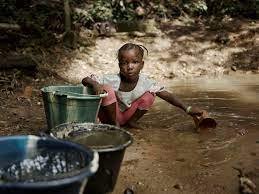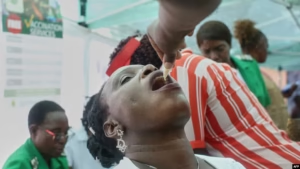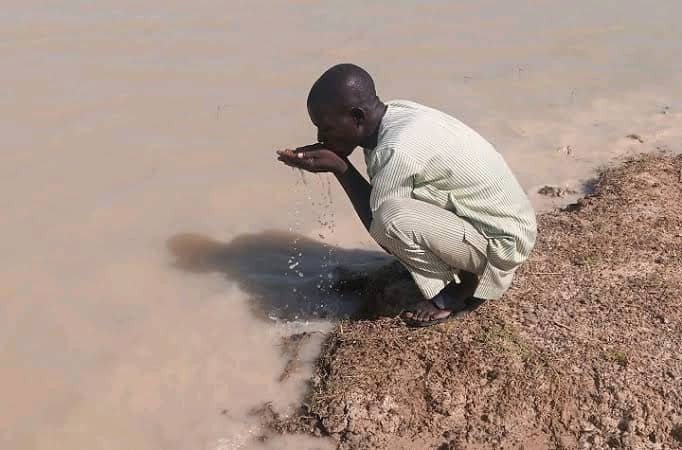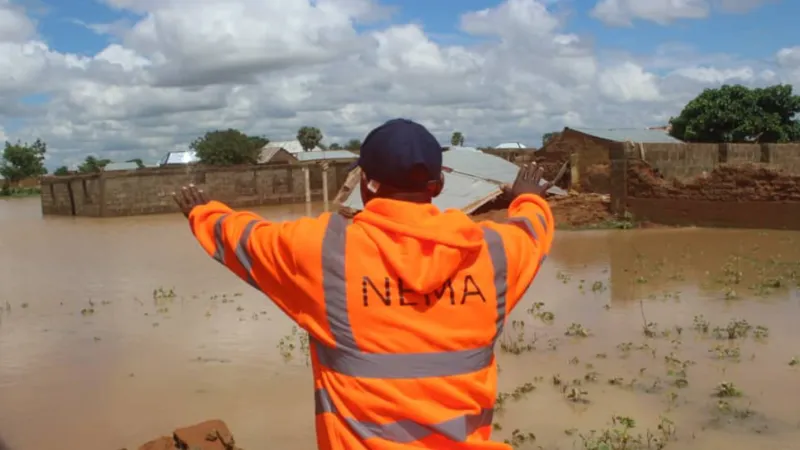The current outbreaks of Cholera disease in the northern axis of Nigeria is causing fresh concerns, as the disease is claiming lives and leaving hundreds hospitalized. Hussaini Kafi in Kano delves into the root causes of the resurfaced cholera outbreaks, highlighting the most affected regions, and explores potential solutions to mitigate and ultimately curb the spread of the disease.
High Incidence Rates

In recent months, cholera has made a worrying resurgence in parts of northern Nigeria, particularly affecting several states in the Northwest and some parts of the North-Central region. The current outbreak is primarily characterized by high incidence rates, especially in rural areas where access to clean water and healthcare remains a significant challenge.
Between October 7 and November 19, 2024, the Africa Health Report (AHR) revealed that a cholera outbreak in the northern states of Kano, Plateau, and Sokoto has led to at least 35 deaths and hospitalizations of many others. The outbreak has affected both rural and urban areas, with local health authorities and state governments working actively to contain its spread.
Sokoto State: Rising Toll and Health Response
Sokoto State has been particularly hard-hit by the cholera epidemic, with at least 25 confirmed deaths and over 1,160 affected individuals. The regions mostly impacted include Sokoto North, Silame, and Kwars Local Government Areas (LGAs), where many individuals have fallen ill, and numerous patients are receiving treatment in local hospitals. The State Commissioner for Health, Dr. Asabe Balarabe, confirmed that 15 patients are currently receiving medical care at various medical facilities.

In response to the outbreak, Dr. Balarabe assured the public that the state government, in coordination with rescue teams, is working diligently to manage the crisis. Public health measures have been put in place, including enhanced surveillance, the distribution of chlorine tablets, and the promotion of hygiene practices such as regular handwashing and proper sanitation. Authorities have urged residents to report any symptoms of cholera promptly to local health centers to prevent further spread of the disease.
Plateau State: One Fatality and Widespread Hospitalizations
The situation in Plateau State has also raised significant concern. A cholera outbreak in the Kanam Local Government Area has claimed one life and left around 60 others hospitalized. The outbreak began in several villages, including Ngyang, Kwalmiya, Banak, and Bakin Kogi, before spreading to the district headquarters in Dengi.

Local government officials, including the Chairman of Kanam LGA, Ayuba Musa, have confirmed the spread of the disease. In response, local authorities have taken swift action to mitigate the outbreak’s impact. An extensive public health campaign has been launched to raise awareness about the importance of proper sanitation, access to clean water, and effective hygiene practices. The government has also urged residents to avoid unsanitary water sources and to boil water before consumption.
Kano State: Flooding Linked to Cholera Outbreak
Kano State, one of the most populous states in Nigeria, has also been severely affected by the cholera epidemic. In Kanye Village, Kabo Local Government Area, seven people have tragically lost their lives to the disease. Additionally, over 600 individuals have been affected, with more than 30 fatalities reported across the state.

Reports indicate that the cholera outbreak was triggered by the consumption of contaminated water following a flood in the region. Health authorities have confirmed that several individuals have been hospitalized, though the state’s Commissioner for Health, Dr. Abubakar Labaran Yusuf, has expressed unfamiliarity with specific details surrounding the incident. Nonetheless, efforts to contain the outbreak are ongoing, with local health teams working tirelessly to provide immediate care and prevent further transmission.
Root Causes and the Path Forward
The major cause of cholera outbreaks in these northern states has been linked to poor sanitation and unsafe drinking water. Seasonal rains, floods, and inadequate waste management systems have contributed to the contamination of water sources, increasing the risk of cholera transmission. Cholera is a waterborne disease that spreads rapidly in environments where access to clean water and sanitation facilities is limited.
The Coordinator of the Kano State Centre for Disease Control (KNCDC), Prof. Muhammad Adam Abbas, emphasized that cholera thrives in environments with poor sanitation. He stressed the importance of maintaining high standards of personal and food hygiene to prevent its spread.
Prof. Abbas recommended several preventive measures, including frequent handwashing, ensuring a clean environment, thoroughly washing fruits and vegetables, and properly storing food.

He also pointed out the heightened risk during the rainy season, as runoff water can carry contaminants such as dirt and faeces into low-lying wells.
To reduce this risk, he advised the construction of parapet embankments around wells to prevent contamination.
As the outbreak continues, health experts emphasize the need for improved water treatment infrastructure, better sanitation practices, and widespread public health education to prevent future outbreaks. State governments and health authorities are urged to collaborate on long-term solutions, such as the construction of safe water systems and the distribution of water purification tablets, to address the root causes of cholera.
The cholera outbreaks in Sokoto, Plateau, and Kano states highlight the ongoing challenges posed by inadequate sanitation and access to clean water in Northern Nigeria. While local authorities are actively working to contain the outbreaks, the epidemic underscores the urgent need for improved public health infrastructure and education. As the situation develops, it remains critical for residents to follow health guidelines, and for government agencies to take proactive steps to ensure the safety and well-being of vulnerable populations.



